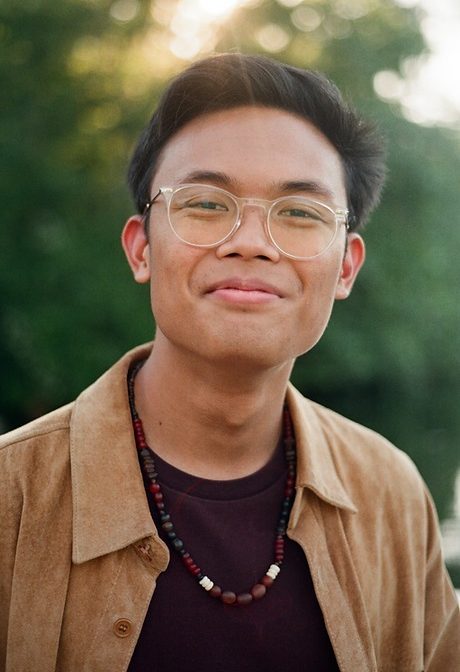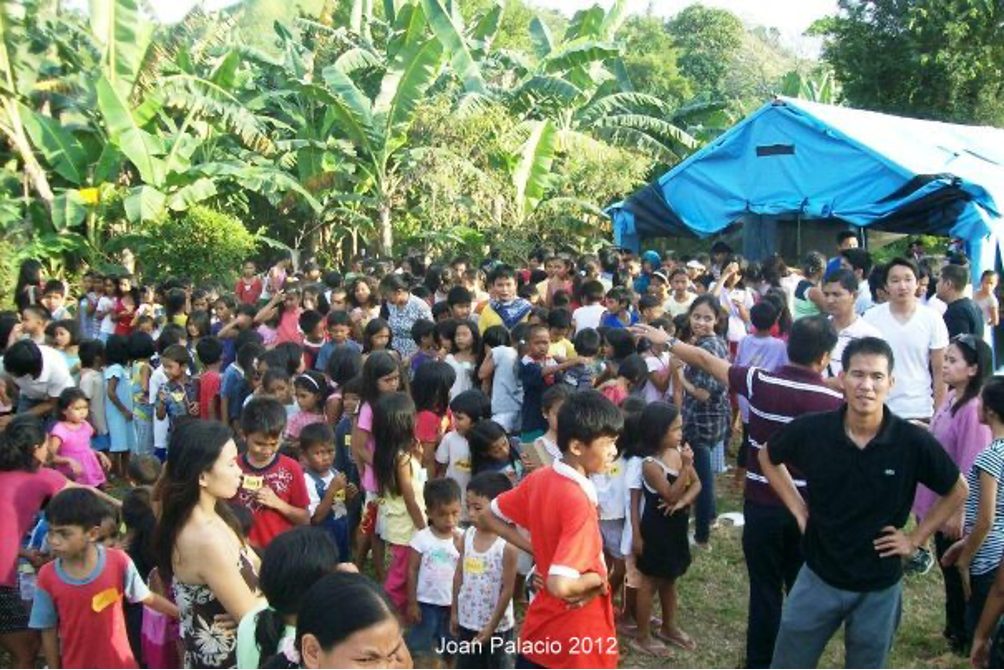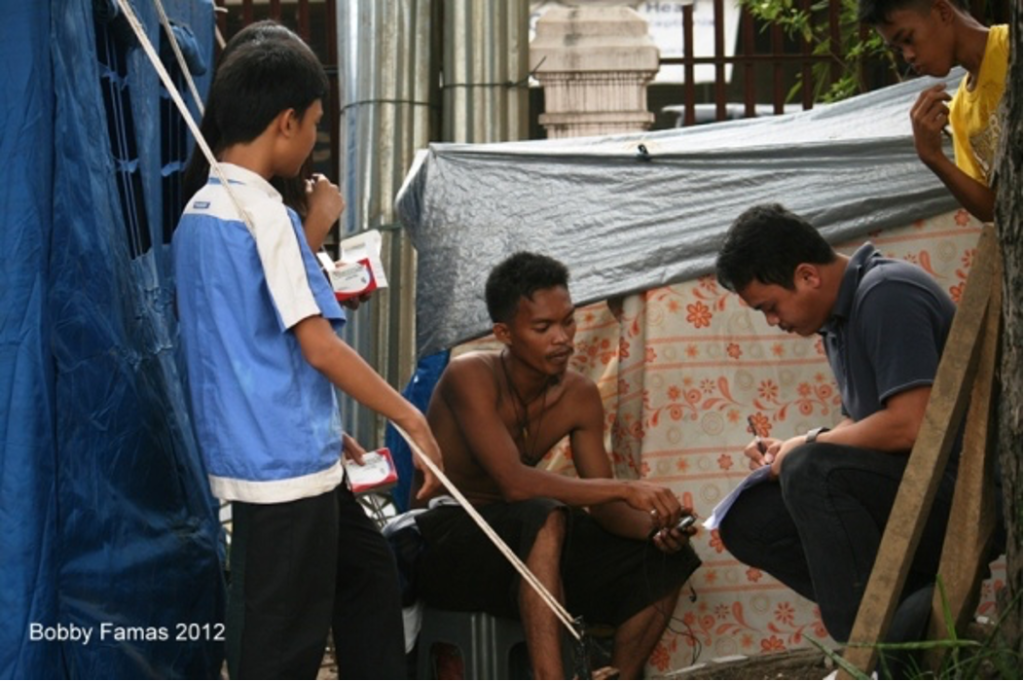“I am not one of them.”
I said this in dismay as I witnessed, on the news, white evangelicals dragging a Christian flag across the halls of the besieged American capitol. Though there was much to mourn about this terrible event, I particularly grieved how the ones leading the insurrection were those who deemed themselves “evangelical.” As someone who grew up a “born-again” Christian in the Philippines — also known as a “Filipino evangelical” — the evangelicalism on display at the capitol was unrecognizable to me. In many ways, it went against my convictions as someone who identifies with the evangelical movement.
For me, evangelicalism has a particular commitment to justice and liberation for the oppressed — at least, that was what my Filipino pastors and peers taught me. The Philippines is a nation ravaged by immense poverty and ecological devastation. Year after year, many Filipinos suffer from the destruction caused by typhoons, with thousands of people perishing in their wake. Disasters like these have led to widespread poverty and economic disparities, with the average low-income household living on USD 7.30 daily. This was the sociopolitical context I grew up in, leading to social and political activism as a central facet of my evangelical convictions.
I recall a group from my church modeling this activism when we visited “tent cities” where people displaced by storms lived as they waited for new housing, provided food and healthcare for the impoverished, and protested on social media and other avenues against oppressive government policies perpetuating inequities between the rich and poor. Through these encounters, I witnessed evangelicalism fueling the pursuit of social justice. It was informed by liberation theologians like Dr. Melba Padilla Maggay, an evangelical leader who protested against political dictatorships and ministered to the poor, and ministries like Protect the Children, a coalition of evangelical churches that aided and protected young, vulnerable Filipinos from exploitation or trafficking. Through fellow Filipino evangelicals, I saw how God’s heart guided our actions and convictions toward the liberation, protection, and provision of the marginalized among us. Indeed, there was no separation between our evangelical identity and the pursuit of social and political liberation.
But many American evangelicals seem to have different concerns. American evangelicalism today is contentious, polarized by the societal divisions of Trump’s presidency, which began with a Muslim travel ban and culminated with a besieged U.S. Capitol. Indeed, “evangelicalism” in America today is viewed by many as synonymous with bigotry and white Christian nationalism and is characterized by the political baggage of recent years.
Sadly, as someone who is part of the Filipino American communities, I also witnessed this broader polarization affect and divide my own people. In an article that recounted the 2020 election season, political analysts reported how there really is “no Filipino American vote” because “they’re divided.” Torn apart from each other due to the pressures and tensions of U.S. politics, Filipino American voters struggle to find commonality even though we all share the same ethnic identity.
And yet, most Filipino immigrants move to the United States for a similar reason: they are in pursuit of better futures. This is true of my family, who immigrated in 2015 to provide pathways for me and my siblings to pursue our college degrees here. As of 2019, there were over 4.2 million Filipinos living in the United States, seeking work, education, financial support for their families back home, and a new place to put down roots and call “home.” But how can we call the United States “home” in a place where we feel so divided and “anxious” by the current state of American politics?
My evangelical identity, my religious formation in the Philippines … spurs me to pursue the work of bridgebuilding and social activism.
This takes me back to my evangelical identity, my religious formation in the Philippines, which spurs me to pursue the work of bridgebuilding and social activism. My evangelicalism reminds me that there are voices around us that have been silenced by polarization and forced to the margins. In many ways, these are the voices of immigrants, like my fellow Filipino Americans, who struggle to survive in a current American political arena that is becoming more and more challenging to navigate, especially with the significant rise in anti-Asian hate in recent years.
In the polarized sociopolitical context of today, the goal is not to further the divide but to build bridges. Both American evangelicalism and the Filipino American community are deeply divided by political tensions, and there is a great need for peacemakers and bridge-builders to do the healing work of repair and belonging. The goal is to bring our stories, concerns, fears, hopes, joys, and pains to the same table — what Eboo Patel calls a “potluck,” or what Amar Peterman describes as the place where diverse peoples can bring the “fullness of themselves to their communities, not to be appropriated or oppressed, but loved.”
Amid the political challenges of recent years, I do feel hopeful for the future. Last fall, I was invited to join a focus group as part of Interfaith America’s “Exploring AAPI Experiences of Religious Identity and Diversity” project. There, people from various AAPI communities, coming from different faith traditions and cultural backgrounds, vulnerably shared their stories of immigration, faith, and identity. The focus group taught me that Patel’s vision for an American potluck is achievable. It is not a pipe dream because, along our various lines of difference – whether among Filipino Americans, AAPI communities, American evangelicals, or Americans across all racial and religious lines – togetherness is possible if we choose the path of empathy, of joining, of belonging — of learning each other’s names and stories, and advocating for each other in deep love and empathy.
This potluck is my hope in an American context challenged by racial hate and polarization. I pray that we come alongside each other, so that one day, we can build a different America. So that one day, the potlucks we share will become homes, places of rest and refuge, for all — foreigners, citizens, and everyone in between.
Yanan Rahim Melo (he/him) is a writer from Cagayan de Oro, Philippines, who works at the disastrous convergence of race, (settler) religion, and ecological devastation. Follow him on Substack, Sacred Sonder, and on Instagram, @yananrahim.
READ THE SERIES
Exploring AAPI Experiences of Religious Identity and Diversity

This article is part of Interfaith America’s AAPI qualitative research and storytelling initiative, which explores Asian American and Pacific Islanders’ experiences of religious identity and diversity in the United States. Stories published as part of this initiative offer key findings from the research and spotlight AAPI changemakers across different religious, civic, and professional sectors.






